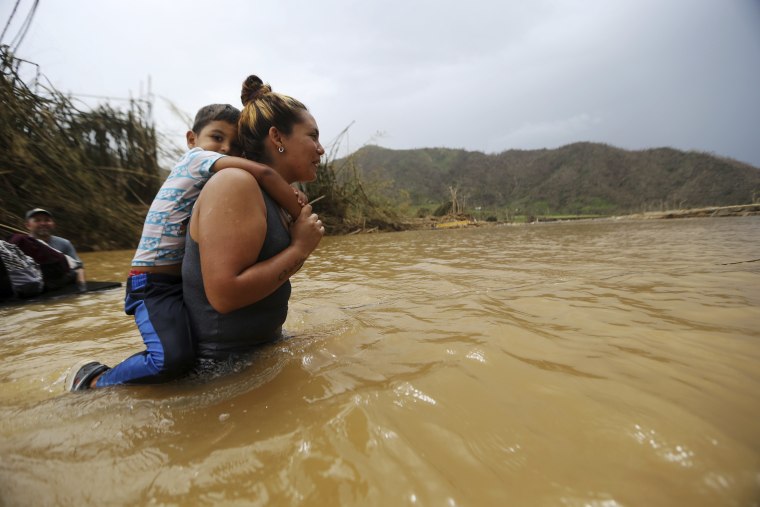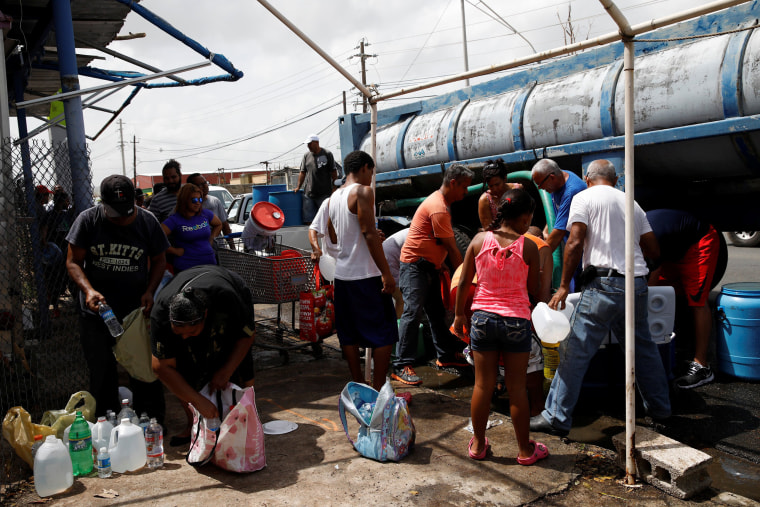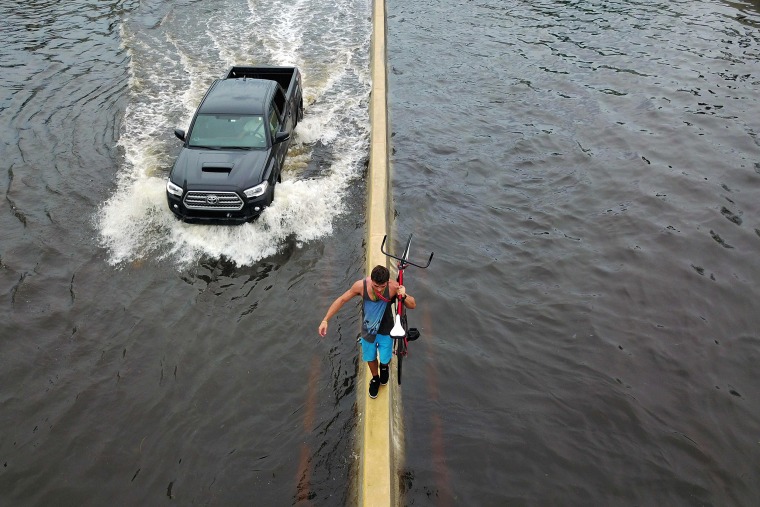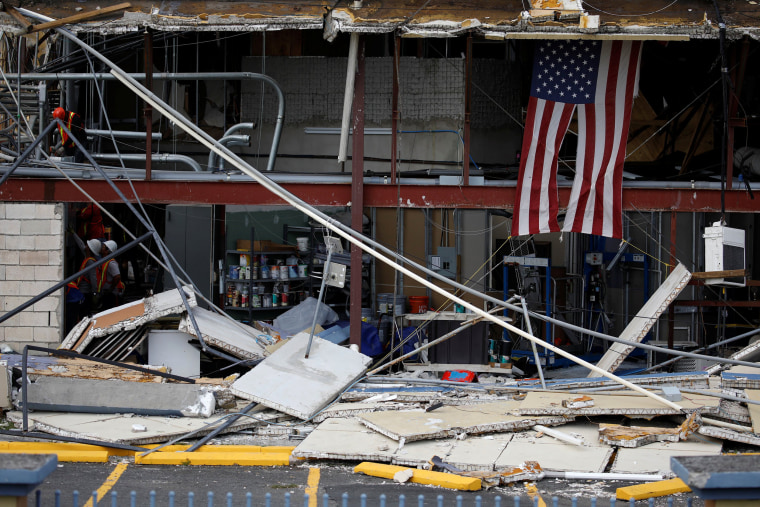BOSTON, Mass. — It's not like we weren't warned.
On September 18, Carlos Mercader, the executive director of the Puerto Rico Federal Affairs Administration, said in an opinion piece in The Hill about what was coming, even when the U.S. territory was helping victims from other Caribbean islands who were hurt by Hurricane Irma.
“Today, for the first time in 85 years, Puerto Rico lies in the direct path of a hurricane. In its wake, that safe haven will remain strong.”
A day later, on September 19, the government of Puerto Rico sent the following email to media with this subject line: “Governor Ricardo Rosselló: It is time to act and evacuate.”
Related: Mayor Issues ‘S.O.S.’ as Puerto Ricans Scramble to Help Most Vulnerable
"No generation has seen a hurricane like this since San Felipe II in 1928. This is an unprecedented atmospheric system,” Rosselló said. “I want to remind you that the Emergency Management team will not be available to help you once the winds reach 50 miles per hour. We need to keep in mind that we must also protect the lives of these first responders. It's time to act and look for a safe place if you live in flood-prone areas or in wooden or vulnerable structures.”
A few hours later, Hurricane María began a path of destruction through Puerto Rico that virtually isolated the U.S. territory from the rest of the world for almost 24 hours. All the dire predictions had tragically proven true.

You would think the United States federal government, as well as the U.S. media, were listening to the warnings from the Puerto Rican government, especially given that the country had already been hit by Harvey in Texas and Irma in Florida.
But they weren’t. There was no urgency. As Maria was slamming Puerto Rico and the United States Virgin Islands, on September 20, the White House was being very vague about its response.
A few days later, while President Trump complained about the NFL and U.S. media outlets felt obligated to cover news about the NFL, it was inherently clear that Maria had indeed destroyed a place where close to 3.5 million American citizens live, causing what one person said was “an atomic bomb of nature.” Now, one week since Maria, the federal government is painting a picture that it has been helping Puerto Rico all along, even though reports from the island would completely contradict that.
The fact remains: the government of Puerto Rico had issued serious warnings around September 18 and the United States, and the U.S. media too, didn’t really crank up its response until after it was too late.
Now, while there is talk that President Trump will visit Puerto Rico and help the island in any way he can (but don’t mention a real relief package), it shouldn’t be Trump who should visit: it must be a massive military operation that will airlift and rescue the vulnerable people who has now been suffering in a zone of impending death for a week.

Related: Rep. Nydia Velazquez: Response to Hurricane in Puerto Rico Is ‘Totally Inefficient’
This is not as extreme of an idea, given that the last week in Puerto Rico has been catastrophic. This is no longer about FEMA press releases or pleas for help from local government officials. People's lives are at stake and the only option now are the U.S. armed forces.
In addition, the idea already has advocates on both sides of the partisan aisle. On Tuesday night, MSNBC contributor and Republican strategist Steve Schmidt essentially said it was the only option.
"Our fellow Americans are suffering," said Schmidt. "We are an immensely powerful country. The full might of the United States military should be deployed here."
Before Schmidt’s comments, Rep. Luis Gutiérrez, the Illinois Democrat of Puerto Rican descent, was also echoing similar sentiments.
RELATED: Marc Anthony and Jennifer Lopez Together for Puerto Rico
“There is no food in supermarkets. We need an airlift. We need an effort the scale of Dunkirk,” Gutiérrez said, “We know the U.S. is capable. We can invade foreign countries with hundreds of thousands of troops, flawless communications, food and security. We need the same effort now.”

So far, the Department of Defense is following a more traditional response and officially taking over operations. But that response would have worked if the U.S. was paying serious attention the the Puerto Rican government last week.
This week is different. People are starving. People are desperate. A real crisis is everywhere, but especially outside of San Juan. Massive efforts need to begin.
If America truly wants to be great again and keep its end of the colonial bargain it holds with Puerto Rico, this is the only option left, and if President Trump wants to avoid his own Katrina, it’s time for a large deployment of troops to arrive.
Now.
Julio Ricardo Varela is co-host of the 2017 Webby-nominated In The Thick podcast and senior digital editor of LatinoUSA.org, the website for NPR’s Latino USA, a 2014 Peabody-winning show anchored by Maria Hinojosa and produced by The Futuro Media Group. He is also the founder of LatinoRebels.com.

